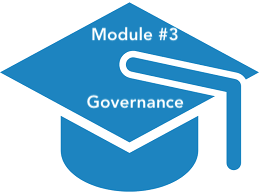TrustSource v1.9 released!
We are happy to announce our latest release of TrustSource, version 1.9 to arrive Sept. 10th 2019!
With our v1.8 we have introduced a more detailed versioning schema allowing a closer matching between the code repos and the scan results by introducing support for branch and tag. In this release on of the major updates is the new approval, which allows to specify a combination of versions which shall be taken for an approval. But besides this, there is even more:
New Features:
- Improved Approval Process:
The new approval will be started as the former version. But a wizard will guide you through the steps. You will be able to give the approval a particular name, select the modules and analysis versions to apply. When you are confident with your selection and issue the approval request, TrustSource will generate all relevant documentations (Notice File, if required a SOUP file – see below – and a new compliance report) and process the request towards the compliance manager(s).
They will find the information in their inbox and can immediately dive into the new compliance report. - Compliance Report:
The new compliance report will give a comprehensive summary of the project situation including legal and vulnerability status. Also it will the required documentation and unveil the degree of completion. Also the report will outline the changes in component status a project manager has made will be shown. Thus manual status changes will become immediately visible, comments on vulnerabilities having been muted will be available for review and more…. - DeepScan:
How often do you rely on the declared license? How many of us really dig deep to ensure that there is no little snippet of code containing another license? I probably better do not want to know. However, we proudly present DeepScan. This new service allows you to specify the URL of a component repository, which DeepScan then will assess for you in the background. It will search for all sort of data providing a relation to a license specification and present the findings to you. Give it a try! You might be surprised… - Support for Medical Device Directive Documentation:
In 2020 the European Medical Device Directive will force developers of software related to medical devices to clearly outline all third party software and track these changes and require these to register each change (UDI-ID). We prepare to support this procedure and already offer automatically generated SOUP-lists as well ass COTS-component management. Further steps to follow, sty tuned with our newsletter.
Improvements:
- Improved sorting and selections from lists
- Multi-license cases will be marked as warning as long as no decision about the license to use has been made, even if both licenses would result in no obligations. Thus all required decisions will be easy to identify.
- We were able to identify some inputs from scanners being misinterpreted, e.g. „>=“-version conditions, resulting in difficulties with the correct version matching. These cases will be properly resolved now.
Open Source Governance

Modul 3 - Open Source Governance
Dieses Modul adressiert die Grundlagen der Open Source Governance. Neben den Rollen und ihren Verantwortlichkeiten werden typische Prozesse und Organisationsmuster für unterschiedliche Organisationsgrößen eingeführt:
- Bausteine einer Open Source Governance
- Verteilung von Rollen und Verantwortlichkeiten
- Inhalte einer Open Source Policy
Dauer: ca. 90 Minuten
Zielgruppe: Entwickler, Projekt Manager, Product Owner, Compliance Manager, Architekten, Auditoren
22.2. Erfahrungen aus dem Aufbau von Open Source Governance
Am 22.2.2018 fand in Erfurt der 2. Compliance Day des Bitkom Arbeitkreises Open Source statt. Auf dieser Veranstaltung hat Jan in einem Vortrag Erfahrungen aus der Einführung von Prozessen und Policies zur Open Source Compliance vorgestellt. In diesen Vortrag geht Jan auf die Motivation und Herausforderungen der Einführung von Open Source Governance ein. Darauf aufsetzend stellt er ein umfassendes Konzept mit vier Säulen vor, welche nicht isoliert betrachtet werden sollten und gibt Hinweise, wie diese erfolgreich umzusetzen sind.
Der Vortrag kann hier heruntergeladen werden.
Informationen über weitere Veranstaltungen und des zum AK Open Source gibt es hier.
1.11.17 Übernahme der VersionEye Geschäftskunden
Version Eye streckt die Flügel
Es ist immer schade, wenn ein angesehener Mitstreiter den Markt verlässt. Robert hat mit Version Eye das Thema Versionierung von Open Source Bibliotheken seit 2011 besetzt. Er hat eine große Community aufgebaut und – wie auch in seinem Blog beschrieben – einige Unternehmenskunden gewinnen können. Eine beachtliche und starke Leistung für eine Einzelperson bzw. sein kleines Team.
Zwar hat er in den letzten Jahren vermehrt auch in den Bereich Lizenzprüfung investiert, jedoch hat er mit seinen Kunden scheinbar keinen Weg gefunden, die Sache wirtschaftlich erfolgreich zu gestalten.
Was tun?
Was nun aber tun? Angenommen, die Prozesse sind auf Version Eye eingespielt, jedoch ist ab November, bzw. spätestens Ende Dezember nicht mehr mit der Fortführung zu rechnen.
Wir bieten interessierten Kunden an, für sie die Version Eye-Crawler nach Absprache für einige Monate in unserem Frankfurter Rechenzentrum weiterzubetreiben. Nach Rücksprache mit Robert lässt sich das einfach arrangieren, ohne dass auf Kundenseite viel zu tun ist. In dieser Zeit unterstützen wir Sie auch gerne dabei, einen neuen, für Ihren Bedarf geeigneten Weg zu identifizieren. Gerne stellen wir Ihnen auch unsere Open Source Compliance-Lösung TrustSource vor.
TrustSource fokussiert License-Compliance. Neben den OS-Komponenten lassen sich auch Infrastrukturkomponenten (DBs, MQs, etc.) verwalten, Releases einfrieren und Freigabeprozesse auditfähig dokumentieren. Zudem verfügt ECS über eine Logik, die es ermöglicht, die Eignung von Lizenzen auf einen Awnendungskontext zu prüfen und die resultierenden Anforderungen in Form eines Obligations-Reports abzufragen. SPDX Export und Bill of Materials APIs unterstützen die erforderliche Dokumentation.
Sprechen Sie uns an. Wir helfen Ihnen, die richtigen Schritte zu identifizieren!
